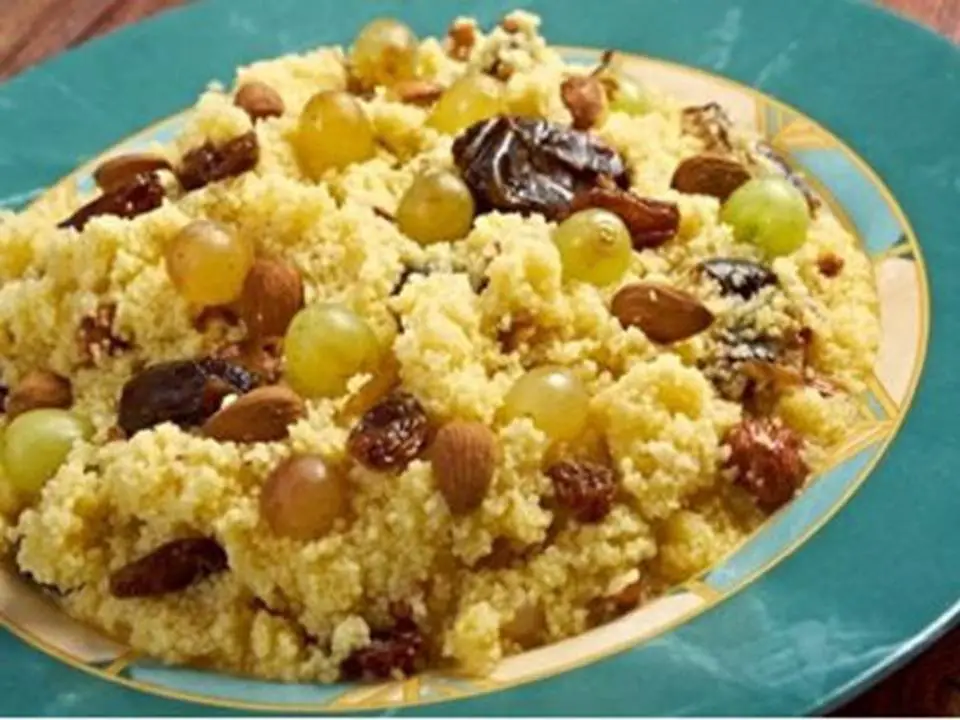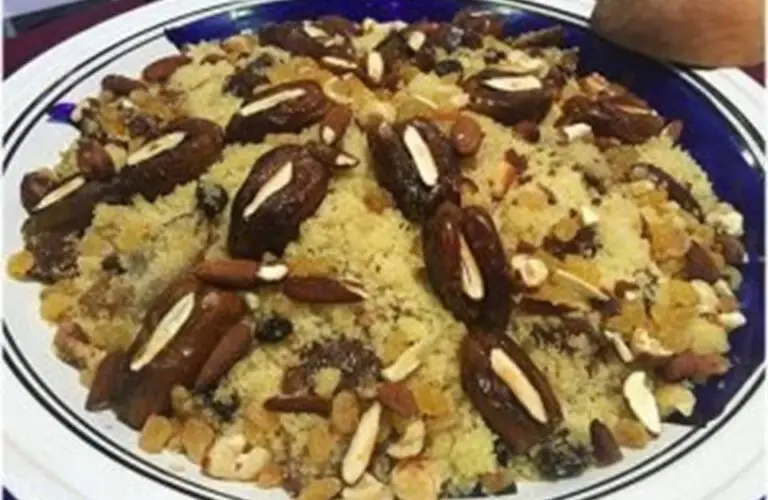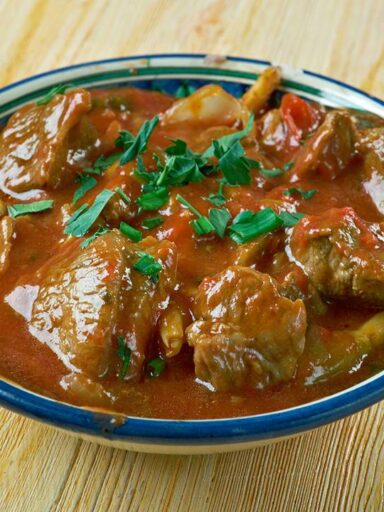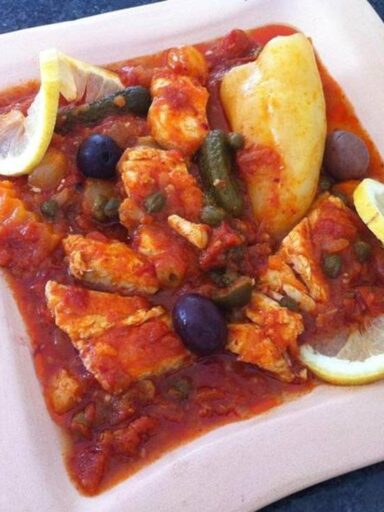Mesfouf: A Tunisian Delight
Tunisian Mesfouf is a traditional dish that represents the rich culinary heritage of North Africa. Often enjoyed during festive occasions, especially during Ramadan and family gatherings, this dish is a testament to the simple yet flavourful cuisine of Tunisia. Mesfouf is essentially a sweetened couscous, but its preparation and ingredients make it unique and highly cherished.
Made From Steamed Semolina Wheat
The base of Mesfouf is couscous, a staple in Tunisian cuisine, made from steamed semolina wheat. What distinguishes Mesfouf from other couscous dishes is its light, fluffy texture, achieved by carefully steaming the couscous multiple times and fluffing it with a fork between each steaming. This technique ensures that the couscous grains remain separate and airy, a hallmark of a well-prepared Mesfouf.
Topped up With Dried Fruit
The couscous is then combined with a variety of ingredients that give Mesfouf its distinctive sweet and aromatic flavour. One of the key components is dried fruit, such as raisins, dates, or figs, which are often soaked in water or orange blossom water to soften them and enhance their sweetness. These fruits are mixed into the couscous along with a

generous amount of ground almonds or other nuts, adding a delightful crunch and nutty richness.
Seasoning the Mesfouf
To further enhance the flavour, Mesfouf is often seasoned with sugar, cinnamon, and a drizzle of olive oil or butter. In some variations, a touch of orange blossom water or rose water is added, giving the dish a fragrant aroma that is characteristic of Tunisian desserts. Some versions also include chickpeas, providing a savoury contrast to the sweetness of the fruit and spices.
Served Warm or Room Temperature
Mesfouf is traditionally served warm, though it can also be enjoyed at room temperature. It is often accompanied by laban (fermented milk) or a glass of mint tea, balancing the sweetness of the dish with a refreshing, slightly tangy note. This dish, simple yet deeply satisfying, is a celebration of the flavours and textures that define Tunisian cuisine, making it a beloved part of the country’s culinary tradition.
Here’s a simple recipe to make Mesfouf:
Ingredients:
2 cups fine couscous
1/4 cup unsalted butter or olive oil
1/2 cup raisins or sultanas
1/4 cup blanched almonds, toasted and chopped
1/4 cup pine nuts or pistachios, toasted
2 tablespoons sugar (optional, adjust to taste)
1/2 teaspoon ground cinnamon (optional)
1/2 teaspoon salt
1-2 tablespoons orange blossom water (optional)
1 cup milk or water (for steaming)
Instructions:
Prepare the Couscous:
- Place the couscous in a large bowl, and sprinkle it with a little water to moisten (about 1/4 cup).
- Rub the couscous grains between your hands to separate them. Let it sit for about 10 minutes to absorb the water.
Steam the Couscous:
- Use a steamer or a couscoussier. Fill the bottom part of the steamer with water and bring it to a boil.
- Place the couscous in the top part of the steamer (make sure it’s perforated) and steam for about 20-25 minutes, until the couscous is fluffy. You can add the raisins to the couscous during the last 5 minutes of steaming to soften them.
Fluff the Couscous:
- Once steamed, transfer the couscous to a large bowl.
- Add the butter (or olive oil) to the hot couscous and mix well until the butter is melted and the couscous is well-coated.
- If using, sprinkle the sugar and cinnamon over the couscous and mix thoroughly.
Add Flavourings:
- Stir in the toasted almonds, pine nuts, or pistachios.
- If using, drizzle the orange blossom water over the couscous and mix again.
Serve:
- Mesfouf is typically served warm. You can add a little more butter or olive oil before serving if desired.
- It’s often accompanied by milk or buttermilk on the side.
Enjoy your Mesfouf as a sweet breakfast treat or a festive dessert!



